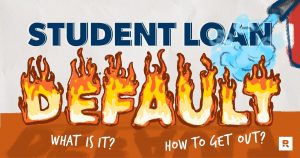As a licensed wealth advisor, I’ve witnessed the heavy impact that debt has on individuals and families, particularly in underserved communities. It’s more than just numbers on a balance sheet; it’s a weight that can stifle dreams, limit opportunities, and perpetuate cycles of financial hardship. But I’ve also seen the transformative power and positive money shift of overcoming debt, and I believe that everyone, regardless of their background or current circumstances, has the potential to achieve financial freedom. Let’s discuss how.
Understanding The Debt Dilemma
Debt can be a complex and emotionally charged issue, often rooted in a combination of unplanned circumstances, systemic inequalities, uninformed financial missteps, and unexpected life events. In today’s world, debt has become a common part of life for so many, often stemming from various sources:
- Student Loans: The goal of improving life prospects with education often comes with a hefty price tag, leaving graduates buried with student loan debt.
- Credit Card Debt: The allure of the buy now, pay later trend can lead to accumulating credit card balances with high-interest rates.
- Mortgages: While homeownership is a dream for many, mortgages represent a significant financial commitment.
- Auto Loans: Financing a vehicle can provide convenience for buyers, but it also adds to the overall debt burden.
- Medical Bills: Unexpected medical expenses can quickly escalate into substantial debt, especially for those without adequate insurance.
It’s common to feel overwhelmed, ashamed, or hopeless when faced with mounting bills and seemingly never ending account balances. This is where an informed shift in perspective can be incredibly empowering. Instead of viewing debt as a personal failure, it’s crucial to reframe it as a challenge to be overcome, a temporary detour on your path to financial growth.
The Power Of Knowledge And Empowerment
Knowledge is your most potent weapon in the battle against debt. Understanding the different types of debt, their interest rates, and their long-term impact on your financial health is essential. Arming yourself with financial literacy can help you make informed decisions, negotiate with creditors, and develop a personalized debt management plan that aligns with your specific circumstances and goals.
Know your numbers by developing a budget and building the habit of knowing where your money is going monthly. Your Four buckets that your dollars typically go to are Taxes, Needs, Wants, and Savings. By mapping out your mandatory expenses (needs) as well as your discretionary spending (wants), You will be able to develop a plan that eliminates your temporary debts to enhance both your spending on wants as well as savings. After doing the homework of establishing the budget, create a detailed map out of your debts, their payment dates, and their interest rates.
Knowing yourself is just as important as knowing the numbers. It is important to know that usually debt isn’t just a financial issue; it’s also a psychological one. The stress and anxiety of owing money can cloud judgment, lead to poor decision-making, and even contribute to mental health problems. Seeking support from friends, family, a financial advisor, or support groups can be instrumental in managing these emotions and developing a positive mindset. Remember, you’re not the first, not the last, and you are not alone in this journey, and there are resources available to help you along the way.
3 Strategies For Debt Domination
There are three primary strategies for tackling debt: consolidation, the snowball method and the avalanche method. Each method is fueled by different psychological motivations and can be more effective for certain personality types.
- Debt Consolidation: This strategy involves combining multiple debts into a single loan with a lower interest rate. This simplifies your payments and potentially reduce the total interest you pay over time. Debt consolidation can be a good option for individuals with multiple debts who are struggling to keep track of payments or who want to simplify their debt management process. However, it’s important to choose a consolidation loan with a lower interest rate than your existing debts, otherwise you could end up paying more in interest in the long run.
- The Snowball Method: This approach focuses on paying off the smallest debts first, regardless of interest rates. As each small debt is eliminated, people gain a sense of empowerment and accomplishment, which can be highly motivating for those who thrive on stacking wins and positive reinforcement. This method is particularly effective for individuals who struggle with feeling overwhelmed by debt and appreciate experiencing tangible progress to stay motivated.
- The Avalanche Method: This strategy prioritizes paying off debts with the highest interest rates first. While it may take longer to see initial progress, this method saves you the most money in interest payments over time in mathematical terms. The avalanche method is well-suited for analytical individuals who are motivated by logic and efficiency of the calculated returns of eliminating high interest debt monthly.
Although many may believe that choosing your debt payment method should simply being math driven, however, a seasoned financial advisor knows that choosing the right method for you should take into consideration your individual personality and preferences to improve the likelihood of success. If you’re someone who thrives off of quick wins to stay motivated, the snowball method might be the way to go. If you’re more analytical and focused on minimizing interest payments, the avalanche method might be more effective. If you want to automate, set it and forget it, using debt consolidation with a healthy savings/debt repayment bucket, will be a way to simplify your financial growth.
Addressing Systemic Inequalities
It’s important to acknowledge that there are systemic inequalities that disproportionately affect marginalized communities, especially Black and Brown families. Factors like discriminatory lending practices, limited access to financial information to make better informed decisions, and historical wealth disparities have contributed to a cycle of debt that can be difficult to break free from. If this wasn’t enough, there is an uptick in unlicensed financial influencers that seek to benefit from the access and information gap that the Black community faces. These practices often target vulnerable populations, perpetuating financial inequality.
It’s important to be aware of these predatory practices and seek out reputable financial institutions and resources. On the local level, community-based organizations and financial literacy programs can provide valuable support and guidance to individuals facing debt challenges. On the societal level, Its important that we address these root causes through policy changes, pushing for financial product transparency, deceptive practice education, financial and economic education in targeted communities, as well as advocacy. With the overturning of Chevron deference, advocating for financial product transparency and predatory practices are important as they have ever been #intheBlaQ.
The Road To Financial Freedom
Overcoming debt is a journey that requires patience, perseverance, and a commitment to change fr the better. It’s about making conscious choices, developing healthy financial habits, and building a strong foundation for your financial future.
In my personal experience, building the habit of sticking to your debt repayment plan, has tremendous financial benefits when the debt is finally paid off, and the repayment budget is shifted completely towards savings and investing. The “two for one” benefit of being debt free and acquiring healthy spending habits within budget is truly rewarding.
After all, financial freedom is not just about having money; it’s about having peace of mind, security, and the ability to pursue your dreams without the heavy burden of debt holding you back. By taking control of your money, informing yourself, and seeking support when needed, you can free yourself and your family from the cycle of debt and create a better financial life for yourself and your loved ones.
Remember, you’re not alone in this journey. There are resources and wealth advisors and financial advisors like myself available to help you every step of the way. With determination and the right strategies, you can achieve financial liberation and build a legacy of wealth and well-being for generations to come.
Read the full article here
















